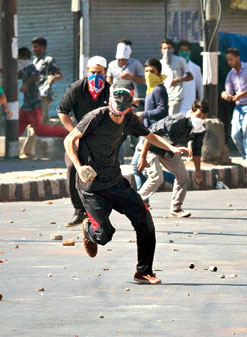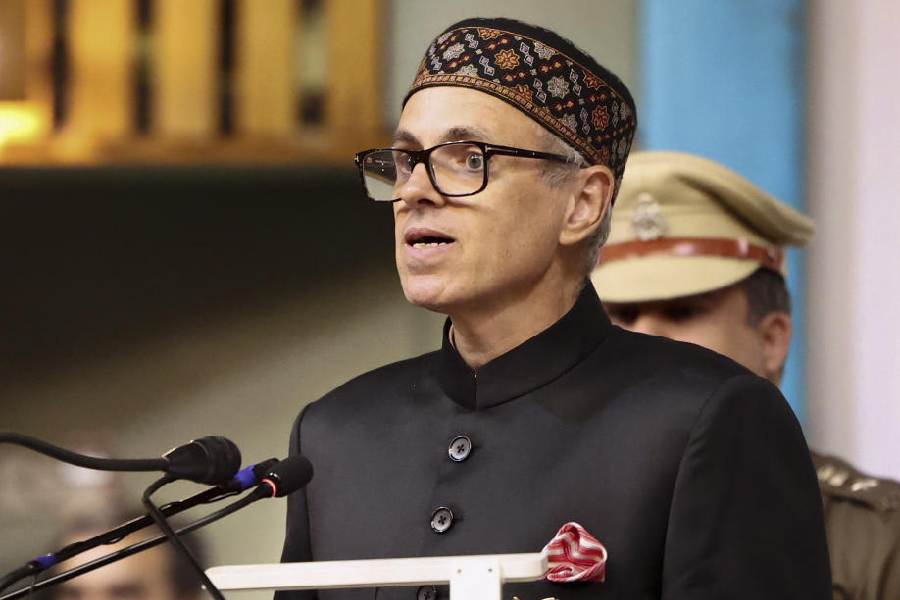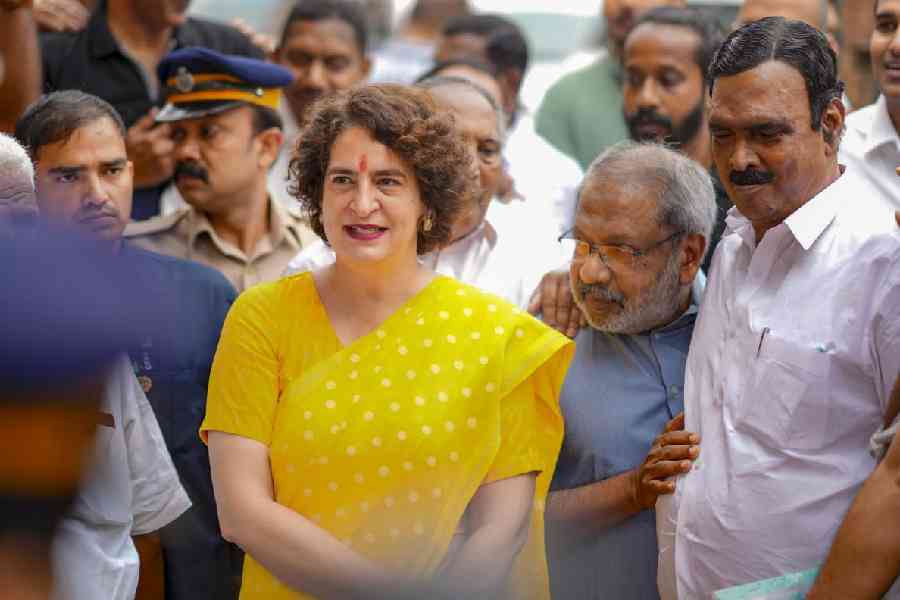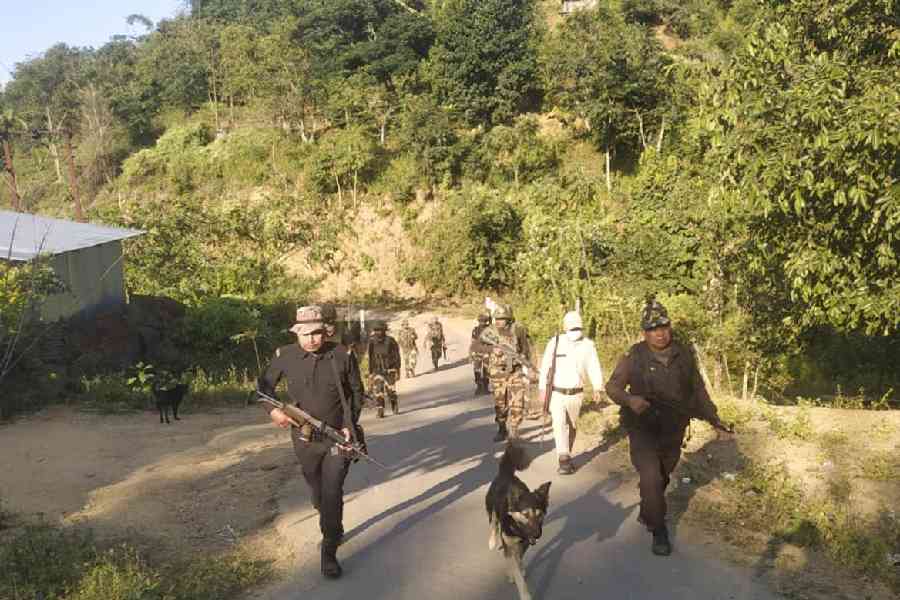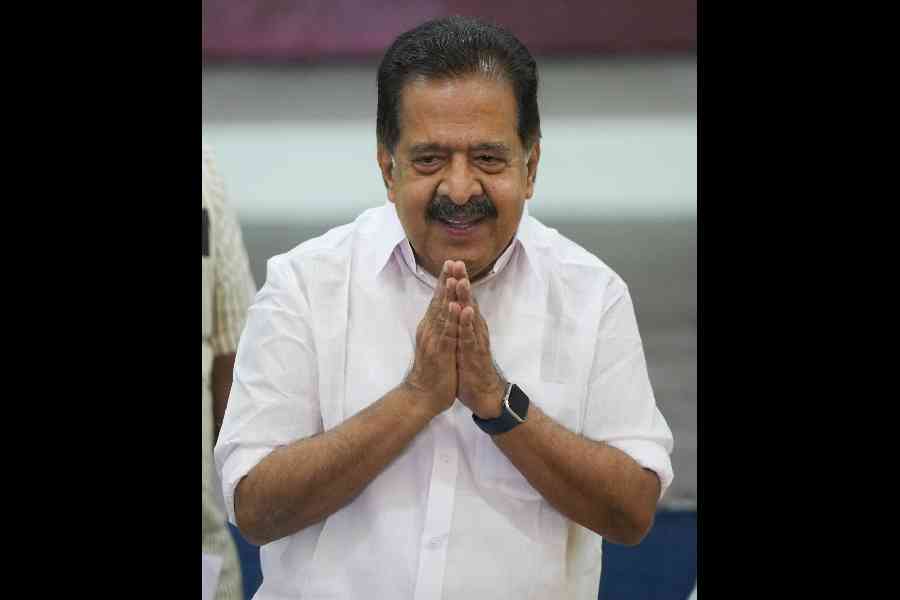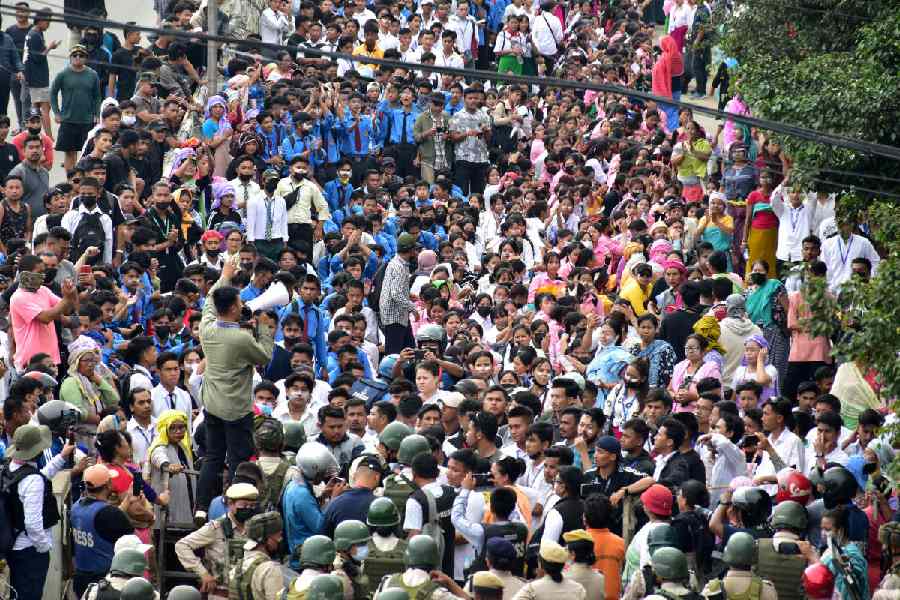Srinagar, Sept. 11: People slaughtered cattle in public across Kashmir today in protest against a Jammu and Kashmir High Court directive to the administration to enforce the longstanding but largely ignored ban on beef.
Several people were injured in Srinagar as protesters, some waving Pakistani flags, clashed with the security forces, who used tear gas and canes.

Senior separatists such as Mirwaiz Umar Farooq, Syed Ali Shah Geelani and Mohammad Yasin Malik were placed under house arrest as a precaution.
The state's erstwhile Dogra rulers had banned the slaughter of cows and other kinds of cattle, and the prohibition has stayed on in the statutes in the country's only Muslim-majority state.
Section 298A of the Ranbir Penal Code makes slaughtering a cow, ox or buffalo punishable with up to a 10-year jail term. Section 298B punishes the possession of bovine meat with a year behind bars.
But the law is violated widely across Kashmir, beef being sold openly at scores of outlets.
Initially, after Independence, nobody bothered to revoke the ban because Kashmiris by tradition rarely ate beef. Gradually, beef became popular in the Valley but Srinagar, where violation of the ban would have been most noticeable, stuck to tradition for a long time.
Only in the past two decades, after the surge in militancy, did Srinagar take to beef-eating in a big way. Yesterday, the court passed its order on a public interest plea moved in Jammu.
Cattle slaughter was today reported from all the three regions of the Valley: north, central and south. People later openly distributed beef.
An MLA, Sheikh Abdul Rasheed, took the lead, organising cattle slaughter in his Langate constituency in north Kashmir. He said his Awami Ittihaad Party had organised two marches at Kralgund and Qalamabad towns and slaughtered two cows.
Rasheed had yesterday moved a private member's bill seeking revocation of the decades-old beef ban. His party today asked all the MLAs to support it.
A spokesperson for the separatist Umat-e-Islami said the group had "sacrificed" a bovine animal near the Jamia Masjid Reshi Bazar in Anantnag.
In Srinagar's old city, some young men collected donations to buy cattle and slaughter them.
The Jammu and Kashmir Muslim Personal Law Board passed a resolution denouncing the ban as an interference in Muslims' religious matters. The board is led by the Grand Mufti of Kashmir, Bashir-ud-din Ahmad Farooqi.
The main Opposition, the National Conference, appeared to have joined the anti-beef-ban bandwagon.
Its chief spokesperson, Aga Syed Ruhullah, said the people of the state had acceded to a secular India and not a theocratic state.
"In a multi-religious country like India, the religious beliefs of every community have to be respected and protected," he said.
"Certain choices are determined by religious beliefs and cannot and should not be dictated by the state."
Ruhullah said his party was consulting legal and constitutional experts on amending the Ranbir Penal Code.

